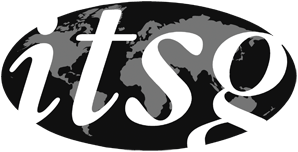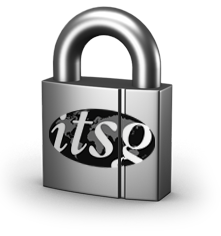IN THE BEGINNING...
The refusal to exchange information with other jurisdictions in tax matters came close to being considered part of the definition of Swiss identity. That has changed.
Up until 2009, Switzerland would, as a general rule, exchange tax information with other jurisdictions only in cases of alleged tax fraud. The distinction between tax evasion (or avoidance in some jurisdictions) and tax fraud played a central role in this context. Somewhat idiosyncratically, the Swiss would not regard an incomplete tax return (e.g., one not listing a Swiss bank account) as a falsified document, but merely as a false ‘declaration’. This distinction, coupled with Swiss banking confidentiality provisions reinforced by criminal sanctions, allowed for safe shielding of assets held with Swiss banks from tax authorities.
It should not be forgotten that this was not a unilateral, or even ‘hostile’, act on the part of the Swiss. The above distinction was reflected in the vast majority of Swiss double tax treaties (D.T.T.s) at the time. In other words, the approximately 60 jurisdictions with whom Switzerland entered into D.T.T.s were well aware of and agreed to the Swiss distinction between tax fraud and tax evasion and the consequences for information exchange. That said, D.T.T.s such as those with the U.S., the U.K., and Germany already included more rigorous standards for quite some time.
In 2009, things took a sharp turn when the Swiss government committed to adopting the O.E.C.D. standard of information exchange. To start with, this was restricted to the exchange of information on request according to Article 26 of the O.E.C.D. Model Convention. With the introduction of F.A.T.C.A., the U.S. prepared the ground for the automatic exchange of information, which was later followed by the even more remarkable concept of spontaneous information exchange.
This article gives an overview of the status quo and expected developments in Switzerland. Currently, Switzerland participates in information exchanges on (i) an automatic basis; (ii) a spontaneous basis; (iii) grounds of a D.T.T. upon request; and (iv) the basis of the B.E.P.S. Project, the so-called Country-by-Country-Reporting (CbCR). Notably, Switzerland has also amended the information exchange clause in its D.T.T. with the U.S.
Finally, very recent case law has pushed the boundaries of what used to distinguish an unlawful ‘fishing expedition’ from a legitimate request under the D.T.T., in this instance with France.
INFORMATION EXCHANGE ON REQUEST – FISHING EXPEDITIONS?
Switzerland now receives a large number of information exchange requests each year, both in relation to individuals and corporations (in 2016: 66,553 requests; in 2017: 18,164 requests). Often, if the request relates to individuals, Swiss bank accounts will be involved, whereas requests in relation to corporations tend to seek information about transfer pricing, substance, and/or tax regimes.
Even though the information exchanged on receipt of a request on D.T.T. grounds has a longstanding history in Switzerland and most D.T.T. provisions on information exchange have been ratified, Swiss case law demonstrates that a number of questions are yet to be resolved. Political considerations must also be included in the equation.
Latest case law developments
As a general rule, information will be exchanged on the basis of a D.T.T. or tax information exchange agreement (T.I.E.A.) request (provided the information is foreseeably relevant for carrying out the provisions of a D.T.T. or T.I.E.A.) to the tax administration of a requesting state or for the enforcement of domestic tax laws. The term ‘foreseeably relevant’ is neither defined in the O.E.C.D. Model Convention nor in the D.T.T.s themselves. The O.E.C.D. commentary states that ‘the standard of foreseeable relevance’ is intended to provide for exchange of information in tax matters to the ‘widest possible extent’. However, so-called fishing expeditions are forbidden, and the foreseeable relevance of an information exchange must be examined on a case-by-case basis.
In a recent judgment, the Federal Supreme Court approved an information exchange request from the French tax authorities in relation to 40,000 UBS accounts, and other matters, after the Federal Administrative Court had rejected the original request by arguing that it amounted to a fishing expedition.
In summary, the French Authorities received, from the German authorities, lists of UBS bank accounts potentially held by French residents. The German authorities had received the information in the course of an investigation. For each account, the French authorities requested the name, date of birth, and address of (i) the account holder; (ii) the beneficial owner according to Form A; and (iii) each person who represents either (i) or (ii). In other words, the information which according to the firmly established traditional view was essential for an information request to be valid was missing.
To show that the relevant accountholders were unlikely to be compliant with French tax law, the French authorities essentially provided arguments based on statistics (e.g., 91% of accounts disclosed in the course of voluntary disclosure procedures were Swiss bank accounts). The Federal Administrative Court (rightly) concluded that statistical reasons are not sufficient to assume acts of tax avoidance and, therefore, rejected the request.
Why and how the Federal Supreme Court could reach its conclusion that this very broad request could be valid remains unclear. The written decision setting out the judges’ motivations has not yet been published.
Information exchange on the basis of stolen data
Various data leaks, in particular from former bank employees who stole client data, caused an increase of information requests based on such stolen data (e.g., the HSBC and UBS cases).
Based on Swiss legislation (i.e., the Federal Act on International Administrative Assistance in Tax Matters), requests for information exchange are not considered if the request violates the principle of good faith, particularly if it is based on information obtained through a criminal offence under Swiss law. This was often the subject of controversial discussions.
In March 2017, the Federal Administrative Court ruled that information exchange requests shall not be granted in the event the requesting party has acquired stolen data for information exchange purposes. The court held that such action violates the principle of good faith. In this case too, the tax authorities appealed, and the Federal Supreme Court granted the information request on the basis that the underlying crime had not been committed in Switzerland and was, therefore, not subject to Swiss law. Consequently, the principle of good faith is not applicable.
Approximately one year later, in August 2018, the Federal Supreme Court further eroded the principle of good faith in relation to information requests. Namely, it held that information requests shall be rejected if the requesting party initially confirmed that stolen data would not be used for the purpose of an information request.
In summary, information requests on the basis of stolen data are granted if the criminal action is not subject to Swiss law or if the requesting party warranted not to request information on the basis of stolen data.
SPONTANEOUS EXCHANGE OF INFORMATION (RULING EXCHANGE)
In addition to exchanges upon request, Switzerland has implemented the spontaneous exchange of information.
The term ‘spontaneous’ means that the tax authority discovering the information sends the information to another country’s tax authority on its own volition. It is neither automatic nor requested. Spontaneous exchange is one of three types of information exchange introduced under the O.E.C.D. Convention on Mutual Administrative Assistance in Tax Matters (C.M.A.A.T.).
Switzerland introduced the spontaneous exchange of tax rulings from 1 January 2017, on the basis of the C.M.A.A.T. Qualifying tax rulings that were confirmed after 1 January 2010 and are still applicable on 1 January 2018 are subject to spontaneous exchange by the tax authorities.
Swiss tax authorities will not exchange all types of tax rulings on a spontaneous basis. Those subject to spontaneous exchange are listed in B.E.P.S. Action 5 and specified for Swiss purposes in domestic legislation.
Even though Article 7 of the C.M.A.A.T. may also cover rulings relating to individuals, the Swiss provisions, as currently drafted, affect Swiss corporations only.
Under the Swiss provisions, the following types of rulings are subject to exchange:
- Unilateral transfer pricing rulings. These include, for example, transfer pricing rulings granted by the Swiss tax authorities without the involvement of other concerned states.
- Rulings relating to preferential corporate tax regimes. For example, rulings about holding, mixed, or domiciliary company regimes; principal companies; I.P. boxes; or finance branches are subject to exchange. As those regimes will be abolished by the end of this year, rulings in relation to the patent box which will be introduced in the following year are likely to be subject to the spontaneous exchange of information.
- Rulings reducing taxable profit without reflection in the financial statement. Such rulings are rare as the Swiss tax liability of a company is tightly connected to its financial statement. In future, an excess deduction for research and development will be available for qualifying companies. Such type of ruling is likely to become more relevant.
- Rulings on permanent establishments (P.E.s). For example, rulings about the recognition of a P.E. or profit allocation to a P.E. are subject to exchange.
- Rulings on conduit structures. Rulings on hybrid structures, for example, are subject to exchange. This category typically applies to circumstances where the structure leads to double non-taxation or under-taxation.
For tax rulings confirmed after 1 January 2018, the taxpayer is requested to complete the O.E.C.D. template within 60 days following the confirmation of the tax ruling. The template is then subject to spontaneous exchange.
In the event the receiving jurisdiction wishes to obtain additional information about the taxpayers, an information exchange, upon request, is required.
AUTOMATIC EXCHANGE OF CBCRS
The latest form of information exchange which was introduced by Switzerland is under the Multilateral Competent Authority Agreement on the Exchange of Country-by-Country Reports. The aim was to comply with the minimum standards for international exchange of CbCRs set out in B.E.P.S. Action 13. The Swiss Parliament enacted corresponding domestic legislation at the end of 2017.
The B.E.P.S. initiative provides for multinational enterprises (M.N.E.) with a consolidated revenue exceeding €750 million (C.H.F. 900 million as per Swiss legislation) to provide tax authorities with information on an annual basis. The information contains the M.N.E.’s worldwide allocation of income, economic activity, taxes (income and withholding tax on received income) paid, number of employees, capital, and retained earnings. The information must be provided in a template with the aim of creating transparency in transfer pricing matters. CbCR aims to increase transparency and allows tax authorities to review the M.N.E.’s tax compliance, in particular the M.N.E.’s transfer pricing policies.
CbCR reports are not disclosed to the public but annually exchanged with the tax authorities in jurisdictions in which the M.N.E. has entities. M.N.E.s were required to prepare a CbCR for the financial year started in 2018 and are to be exchanged in early 2020. Jurisdictions with which Switzerland will exchange CbCRs include the E.U. countries, Russia, China, and India (further countries listed1).
DAC6 – EUROPEAN LEGISLATION: WHY SHOULD THE SWISS CARE?
In June 2018, an amendment to the E.U. Council Directive on Administrative Cooperation in the Field of Taxation, commonly referred to as DAC6, introduced new mandatory disclosure rules on certain cross-border tax arrangements for qualifying intermediaries and relevant taxpayers.
DAC6 covers cross-border arrangements, i.e., those with participants in either more than one E.U. Member State or a Member State and a third country. Further, for an arrangement to be reportable, it must meet one or more of the defined ‘hallmarks’: These are certain features deemed to carry an increased risk of tax-avoidance.
Some hallmarks also require satisfaction of a main benefit test, i.e., whether one of the main objectives of the arrangement is to obtain a tax advantage.
Broadly speaking, five hallmark categories were defined: arrangements (i) involving performance fees for the advisor or mass-marketed schemes, (ii) including tax planning features such as the acquisition of loss-making companies or the conversion of income to capital, and (iii) making use of payments to (almost) zero-tax jurisdictions and depreciation deductions claimed in multiple jurisdictions. All three categories (i) to (iii) require, in addition, that one of the main objectives be the obtaining of a tax advantage. Categories (iv) and (v) include arrangements resulting in (not aimed at!) the undermining of the rules on automatic information exchange and those using the transfer of hard-to-value intangibles in transfer pricing matters, resulting in a reporting obligation regardless of whether a tax advantage was sought.
The reporting obligation generally rests on the ‘intermediary’ who, under DAC6, is any person that designs, markets, organises, makes available for implementation, or manages the implementation of a reportable cross-border arrangement. The reporting obligation shifts to the taxpayer in the absence of an intermediary, where the intermediary is exempt by professional privilege, or where the intermediary is located outside of the E.U.
The reportable information is extensive and includes the identification of the involved taxpayers and intermediaries, details of the relevant hallmark(s), a summary of the arrangement, and the value of the arrangement.
And yet, if it is E.U. legislation, why should the Swiss care?
Although – being part of E.U. legislation – the rules do not directly apply in Switzerland, they may affect Swiss ‘intermediaries’ with operations in E.U. jurisdictions. Therefore, even purely Swiss intermediaries serving E.U. clients will be well advised to consider the impact of DAC6.
Typical examples will include the following scenarios: (i) Swiss bank with branches in one or more E.U. countries; (ii) Swiss consultancy firm registered with an E.U.-based professional services association; or (iii) any E.U.-incorporated entity with its place of effective management in Switzerland, even though the entity is considered tax-resident in Switzerland. In all these cases, Swiss entities are considered E.U. intermediaries and under the obligation to report certain cross-border arrangements to the respective E.U. tax authorities.
Practically speaking, any intermediary that serves E.U. clients should be familiar with the mandatory disclosure rules imposed by the E.U.
NEW DOUBLE TAX AGREEMENTS – IN PARTICULAR, WITH THE U.S.
Whereas Switzerland had already amended its D.T.T.s with close to 60 jurisdictions to allow for information on request in line with O.E.C.D. standards, there was uncertainty, most notably with regard to the U.S.
The current D.T.T. between Switzerland and the U.S. dates back to 1996. A protocol (the Protocol) aimed at amending the D.T.T. was signed in 2009 and was approved by the Swiss legislator in 2010. Until 2019, the Protocol remained blocked in the U.S. Senate, due to the resistance of Senator Rand Paul, who essentially disagrees with the notion of exchange of tax information altogether. The Protocol was finally approved by the U.S. Senate in July and came into effect on September 20, 2019.
The Protocol’s core element is the amendment of Article 26 of the D.T.T., which is now in line with O.E.C.D. standards. Importantly, although the Protocol is unlikely to enter into force before 2020, it allows for requests for information to be made as far back as 2009. Once the Protocol is implemented, the D.T.T. between Switzerland and the U.S. will no longer distinguish between tax fraud (and the ‘fraud and the like’ concept which had been part of the D.T.T. for some time) and tax evasion (avoidance). That said, since the introduction of F.A.T.C.A., that distinction has been largely theoretical with regard to information flowing from Switzerland to the U.S.
Also, the Protocol explicitly excludes requests for information amounting to ‘fishing expeditions’ and requests for information ‘unlikely to be relevant to the tax affairs of a given taxpayer’. Again, the F.A.T.C.A. agreement had previously introduced group requests in 2014, and in the light of most recent case law (cf. the ‘UBS case’ described above), it will be interesting to see what impact the Protocol’s ban on fishing expeditions will have.
SUMMARY AND CONCLUSIONS
In Switzerland, the movement towards transparency in financial matters began in the late 1970’s with the introduction of the Swiss banks’ Code of Conduct on the exercise of due diligence. Not only in Switzerland did it take time for these measures to be translated into the realm of tax information exchange. The development of the concept of ‘beneficial ownership’, originally developed for regulatory and anti-money laundering (A.M.L.) purposes, enabled the exchange of tax information as we know it today.
The past years brought about a convergence, more precisely perhaps a dilution, of previously separate categories. Beneficial ownership used to be distinct for A.M.L., regulatory, and tax purposes. This separation is no more. Information originally disclosed for A.M.L., and even regulatory, purposes is used in tax matters as a matter of course, often without consideration to the appropriateness of such ‘cross-pollination’.
This article traced the development of exchange of tax information in Switzerland. Its D.T.T. started out by including the ‘small’ information exchange provision which, as all parties to those agreements full well knew, essentially constituted mere window dressing. At the time, there was generally no intention between the D.T.T. partners to exchange tax information between jurisdictions. That said, the U.S., the U.K., and Germany were among those with whom, since the 1960’s, Switzerland agreed to exchanging information on a broader basis, e.g., in cases of ‘tax fraud and like’.
The big shift occurred in 2009 when the Swiss government announced the adoption of the O.E.C.D. standard, at the time meaning the exchange of information upon request. Since then, things have moved swiftly. The F.A.T.C.A. agreement with the U.S. was put in place, in effect providing for one-way delivery of information to the U.S., and was followed by Swiss participation in the worldwide automatic exchange of information, T.I.E.A.s, CbCR, and spontaneous exchange of tax rulings. Following these developments, Switzerland is now at the fore of international cooperation in tax matters.
Arguably, one may even identify overshooting tendencies in that Swiss Supreme Court case law has allowed tax information to be exchanged, approving requests made based on stolen bank data or, most recently, fishing expeditions which previously were anathema in the field of international tax cooperation.
There is, of course, much to be said for transparency to contribute to the prevention of tax evasion. Still, one cannot help to note that, in particular, the automatic information exchange is an indiscriminate one-size-fits-all approach. It may result, for example, in the exchange of data that is irrelevant for the recipient. There is, for example, little justification for jurisdictions without a wealth tax to receive its taxpayers’ bank account balance when there is no corresponding provision under their own domestic legislation. Lastly, and even worse, there is a considerable risk of data being exchanged with jurisdictions that do not guarantee the safety of its taxpayers.
The introduction of information exchange laws was in many cases driven by unbridled legislative enthusiasm, often leaving aside data protection considerations. It is by now a matter of intense debate whether the current level of (automatic) information exchange is compatible with data protection and even humanitarian considerations. The world is a more transparent one and much has been achieved. Nonetheless, transparency may not be a goal in itself. The debate must be kept alive.
1 “Country-by-country reports” State Secretariat for International Finance SIF, last modified 10 September 2019.

 Login
Login





















































